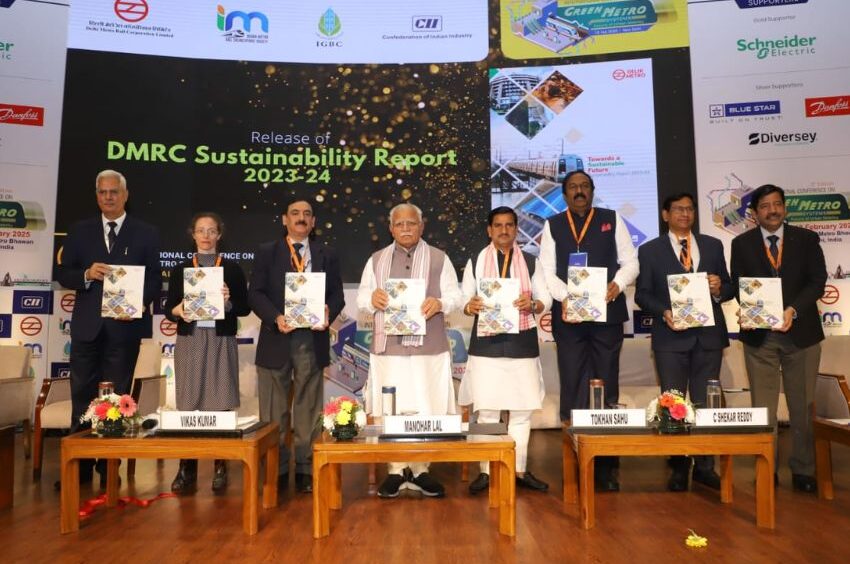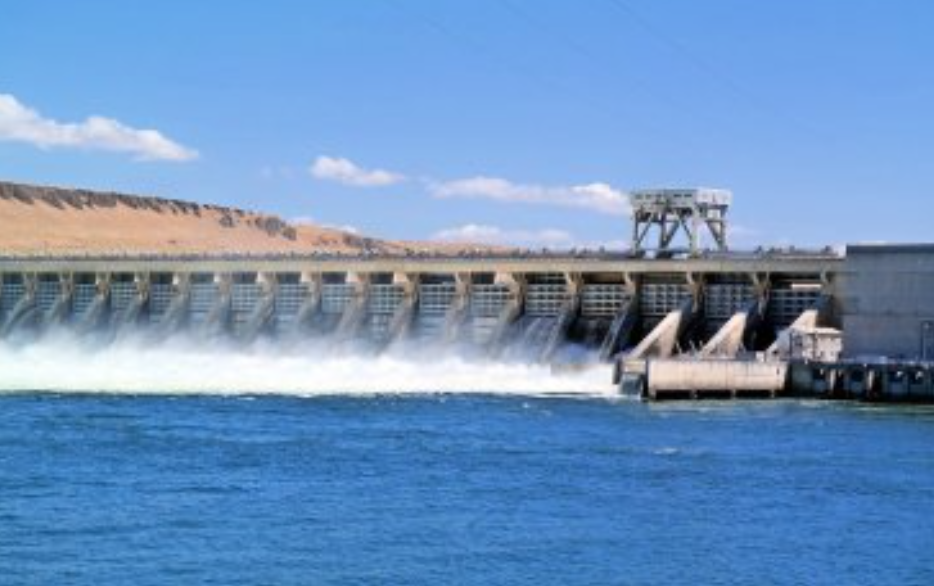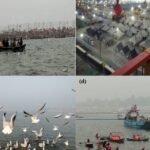Metro Is An Imperative For Green Mobility: DMRC MD Vikash Kumar

As India struggles to find its pace and breath on roads and railways, the metro has emerged as a panacea for transportation flood. As per the United Nations Environment Programme (UNEP), when the country’s transport sector accounts for 13 per cent of the nation’s energy-related CO2 emissions, the Delhi metro (DMRC) alone serves 70 lakh passengers daily on an average basis and gives space to road infra.
While speaking at the international conference on green metro systems 2025, Vikash Kumar, Managing Director (MD), DMRC stated, “Metros are not just a necessity but an imperative for a healthier, smarter and resilient future.”
DMRC: A Beacon Of Green Transportation Systems In India
Kumar stated that DMRC has integrated solar power extensively across metro system stations, depots, and operational areas. Because of such efforts, 33 per cent of its requirements are being made from renewable energy sources. DMRC has already installed more than 50 megawatts of solar capacity, significantly reducing its dependence on conventional power sources and also reducing its carbon footprint.
Kumar explained that it has also opted for more efficient rolling stock lighting systems at the stations. By introducing efficient lighting systems, DMRC has improved its efficiency by 60 per cent, he added. Notably, DMRC trains are equipped with regenerative braking systems that have led to a saving of around 35 per cent of energy and reduced power consumption.
Earning Carbon Credit A New Norm For DMRC
Through its energy-efficient and eco-system-friendly practices, DMRC has earned 92 lakh carbon credits so far. He claimed, “We have earned 92 lakh carbon credits and also in our journey towards carbon neutrality, our Metro Bhawan, one colony at Noida and line 4, they have got carbon neutral certification.”
Indian Green Building Council (IGBC), which rates the projects, based on its eco-friendly nature, has rated DMRC’s all metro stations of phase 3 as platinum rating.
Sustainable Water And Waste Practices
He claimed that DMRC captures almost 80 per cent of stormwater from the station area and 100 per cent from the wire duct. In addition to this, DMRC has made certain innovations as it is capturing and reusing sewage water in Line 6 to the tune of 527 kiloliters per day.
Highlighting the proper treatment of wastewater, Kumar said, “Our wastewater treatment plants ensure zero discharge with treated water being reused for cleaning and horticulture purposes. In fact, in construction also, we have construction and demolition (C&D) waste and around 276 billion tons of C&D waste is being recycled in a C&D waste plant.”
Metro: Future Of Green Transportation
As India’s population continues to shift towards urban areas, with nearly 40 per cent expected to live in cities by 2030, the demand for efficient, eco-friendly transportation will only increase. As a solution, Metro systems have already proven their effectiveness in reducing congestion, cutting down carbon emissions, and improving the overall quality of life for millions, said Kumar.
As the backbone of green transportation, metro rails are not just enhancing connectivity but also playing a crucial role in environmental stewardship, making them key to a sustainable future for urban India. In a study conducted by the Energy Research Institute (TERI), the annual time saved by passengers will be 572.5 million hours in 2031.































































































































































































































































































































































































































































































































































































































































































































































































































































































































































































































































